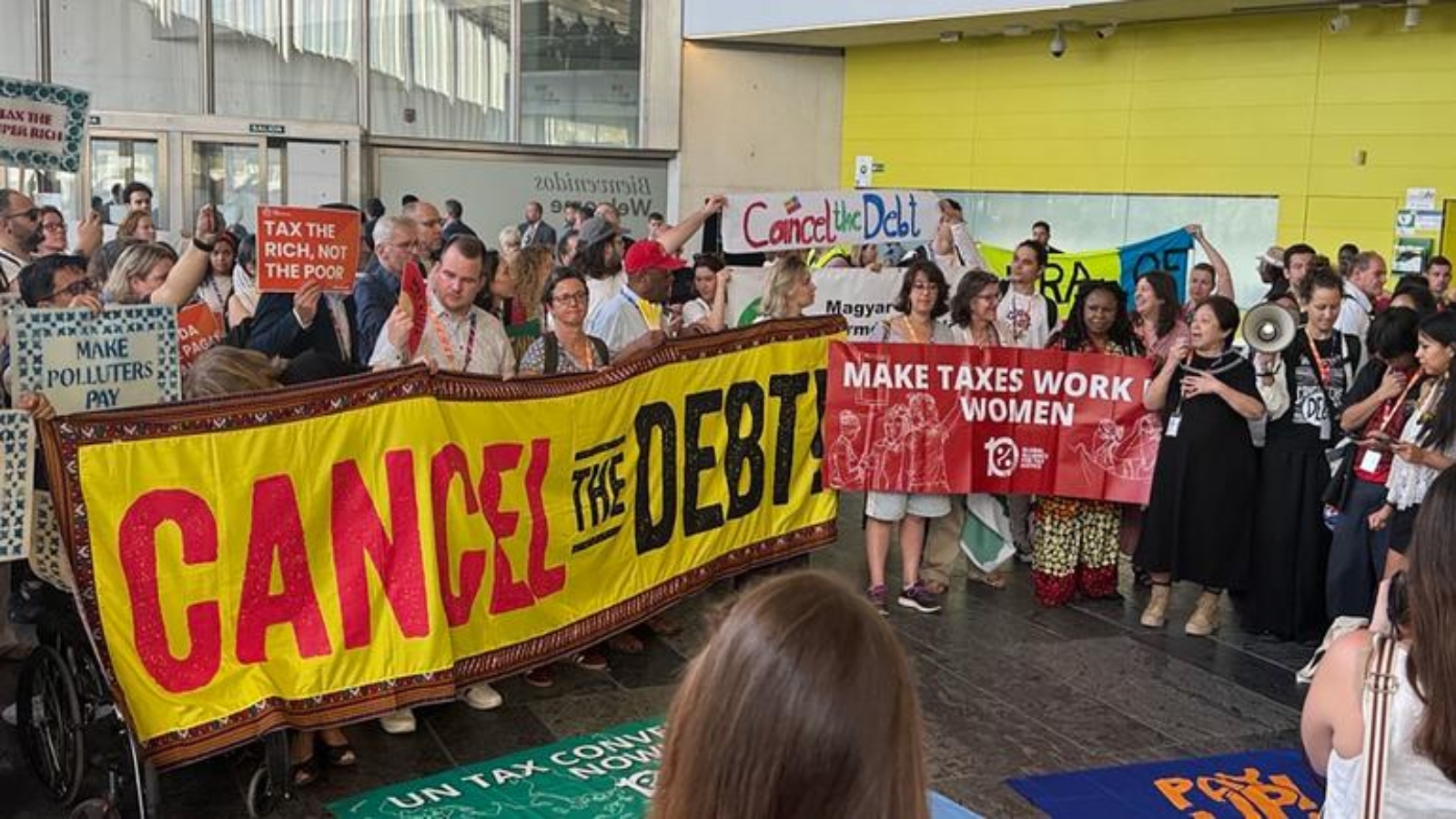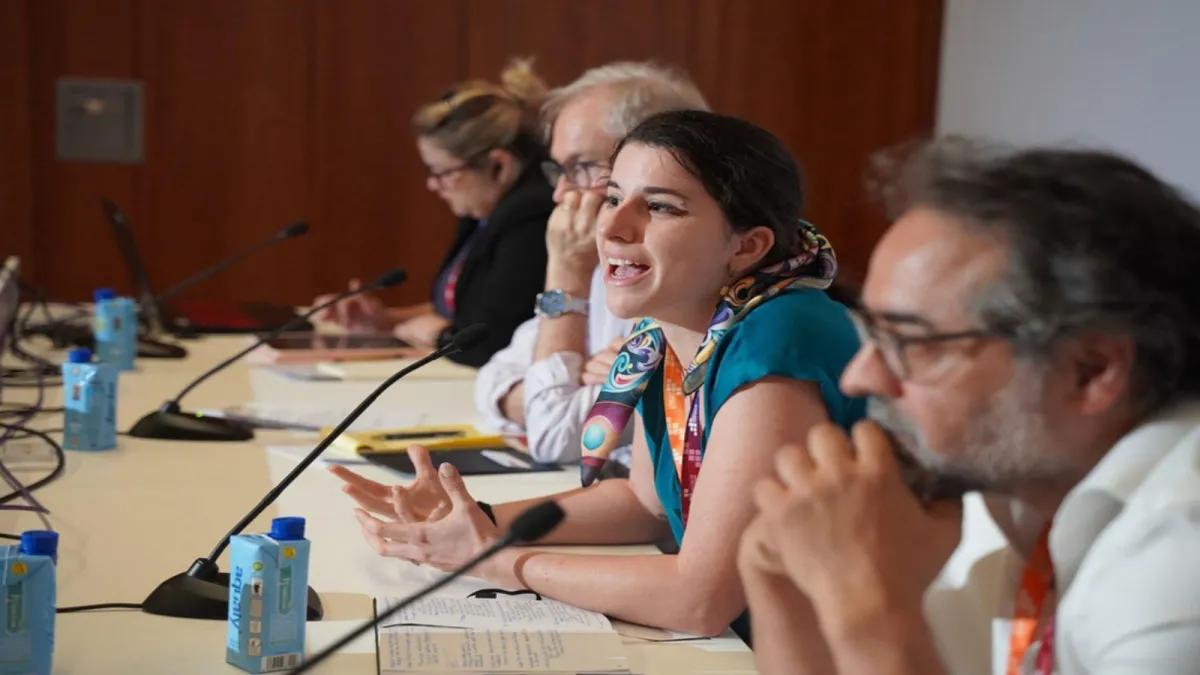
Civil society organisations have welcomed the consensus reached at the landmark sustainable development conference concluding this Thursday in Sevilla, while cautioning that real progress will depend on sustained action.
Activists, many from the Global South, attending the talks in Spain, are calling for greater leadership and commitment from wealthier nations to help address long-standing structural inequalities.
The 4th International Conference on Financing for Development (FFD4) carries strong symbolic weight, reflected in the agreed priorities of the Sevilla Commitment.
However, organizations warn that there is still a long way to go before promises translate into tangible action.

Good timing
That is the message from Paula Sevilla, a representative of the International Institute for Environment and Development (IIED) – a London-based research centre – who has worked for decades on sustainability and climate justice in Latin America, Africa, and Asia.
“This summit has come at a crucial time to try to restore faith in international cooperation, especially after the pandemic, which exposed a lack of global solidarity,” she stated.
One of IIED’s main goals in Sevilla has been to ensure that the announced financial commitments actually reach local communities at the forefront of the climate crisis.
To that end, the organization emphasises the need to address issues such as external debt – draining public budgets – and to ensure innovative mechanisms like blended finance, while directing resources to those who need them most, who are often on the frontlines of finding solutions.
“We’re seeing countries spend more on debt payments than on healthcare or education, while inequalities are deepening,” the expert warned, speaking shortly after a respectful but forceful protest inside the conference centre.
A place to call home
Housing solutions linked to sustainable development are notably absent from the summit’s final document.
“It’s regrettable that it’s not even mentioned, at a time when we are facing a global cost-of-living crisis – not only in the Global South but also here in Spain. Housing is a source of anguish and distrust among citizens, and it has been completely ignored,” Ms. Sevilla said.
Despite this, her organization is working to leverage the Sevilla outcome to find ways to channel funding into providing more affordable homes.
Commenting on the initiative led by Spain and Brazil to work towards fair taxation and push back against tax avoidance by the world’s richest – promoting more transparency and accountability – the IIED representative said it could be a useful path toward correcting structural inequalities.
Tax for development
“We need leadership from the Global North, where many of the world’s major tax-avoiding corporations are based. Without their commitment, we won’t move forward,” she stated.
She also criticized the absence of the United States from the summit – not only as a diplomatic setback but also as a worrying precedent following the dismantling of its international development agency, USAID.
“We’re talking about people counting their pills to figure out how many days of life they have left. This is dramatic,” she emphasised.
With just five years remaining to meet the Sustainable Development Goals, Ms. Sevilla warned that time is running out – and that the Sevilla Commitment will be meaningless without real change.
“We need political leadership, a will to cooperate, and a commitment to protect democratic space. In the end, it’s organized people who keep hope alive and hold leaders accountable,” Ms. Sevilla concluded.
Concerns for the poorest
Meanwhile, the UN Capital Development Fund – a hybrid development and finance organization within the UN system – warned against leaving the world’s poorest behind.
“At FFD4, we’ve seen exciting coalitions around substantive solutions using blended finance. And while they are significant, it’s important that we guard against a two-tier outcome that leaves the hundreds of millions of people who are living in extreme poverty out of the equation,” said Pradeep Kurukulasuriya, Executive Secretary of UNCDF, which is mandated to unlock finance for the most underserved markets.
“We need private sector capital to flow, not only in middle income countries and the rising stars of the Least Developed Countries that are preparing for graduation. But also to countries and communities in fragile, vulnerable and crisis situations. UNCDF, working with partners across the UN family, has the capabilities to do just that.”
UNCDF works in partnership with international organizations and UN entities to deliver blended finance solutions – including concessional loans, grants and guarantees – in any sector, to de-risk markets and drive sustainable economic growth.
The Sevilla Commitment in brief:
- The Sevilla Commitment sets out a new global roadmap to raise the trillions of dollars needed each year to achieve sustainable development, building on previous international agreements
- It calls for fairer tax systems, cracking down on tax evasion and illicit financial flows, and strengthening public development banks to support national priorities
- The agreement highlights the need for new tools to ease debt pressures on vulnerable countries, including debt-swap schemes, options to pause payments during crises, and better transparency
- Countries committed to boosting the capacity of multilateral development banks, increasing the use of special drawing rights, and attracting more private investment to support development
- It also aims to make the global financial system more inclusive and accountable, with improved coordination, stronger data systems, and broader participation from civil society and others
The Commitment launches the Sevilla Platform for Action, which includes over 130 initiatives already underway to turn the pledges into real-world results.
Source: UN News
 Welcome to the United Nations
Welcome to the United Nations